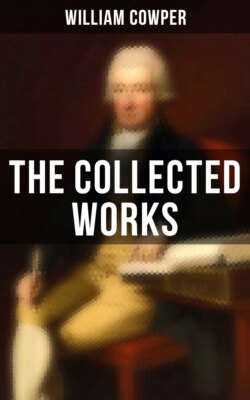Читать книгу The Collected Works - William Cowper - Страница 161
На сайте Литреса книга снята с продажи.
TO THE REV. JOHN NEWTON.[113]
ОглавлениеTable of Contents
Olney, Nov. 27, 1781.
My dear Friend—First Mr. Wilson, then Mr. Teedon, and lastly Mr. Whitford, each with a cloud of melancholy on his brow and with a mouth wide open, have just announced to us this unwelcome intelligence from America.[114] We are sorry to hear it, and should be more cast down than we are, if we did not know that this catastrophe was ordained beforehand, and that therefore neither conduct, nor courage, nor any means that can possibly be mentioned, could have prevented it. If the king and his ministry can be contented to close the business here, and, taking poor Dean Tucker's advice, resign the Americans into the hands of their new masters, it may be well for Old England. But, if they will still persevere, they will find it, I doubt, a hopeless contest to the last. Domestic murmurs will grow louder, and the hands of faction, being strengthened by this late miscarriage, will find it easy to set fire to the pile of combustibles they have been so long employed in building. These are my politics, and, for aught I can see, you and we, by our respective firesides, though neither connected with men in power, nor professing to possess any share of that sagacity which thinks itself qualified to wield the affairs of kingdoms, can make as probable conjectures, and look forward into futurity with as clear a sight, as the greatest man in the cabinet.
Though, when I wrote the passage in question, I was not at all aware of any impropriety in it, and though I have frequently, since that time, both read and recollected it with the same approbation, I lately became uneasy upon the subject, and had no rest in my mind for three days, till I resolved to submit it to a trial at your tribunal, and to dispose of it ultimately according to your sentence. I am glad you have condemned it, and, though I do not feel as if I could presently supply its place, shall be willing to attempt the task, whatever labour it may cost me, and rejoice that it will not be in the power of the critics, whatever else they may charge me with, to accuse me of bigotry or a design to make a certain denomination of Christians odious, at the hazard of the public peace. I had rather my book were burnt than a single line of such a tendency should escape me.
We thank you for two copies of your Address to your Parishioners. The first I lent to Mr. Scott, whom I have not seen since I put it into his hands. You have managed your subject well; have applied yourself to despisers and absentees of every description, in terms so expressive of the interest you take in their welfare, that the most wrongheaded person cannot be offended. We both wish it may have the effect you intend, and that, prejudices and groundless apprehensions being removed, the immediate objects of your ministry may make a more considerable part of your congregation.
Yours, my dear Sir, as ever,
W. C.
